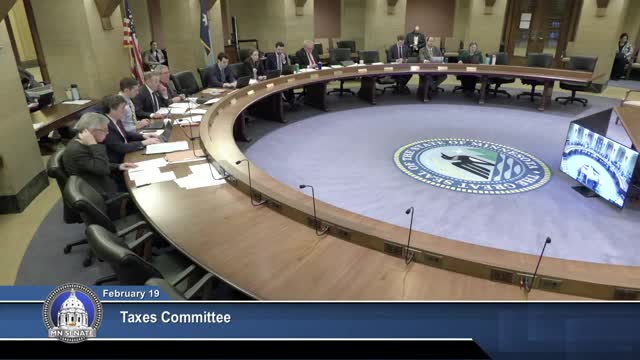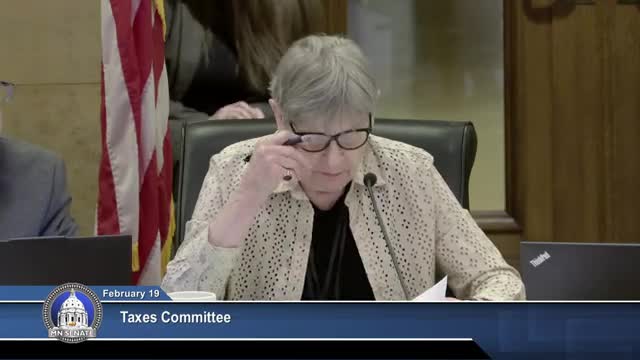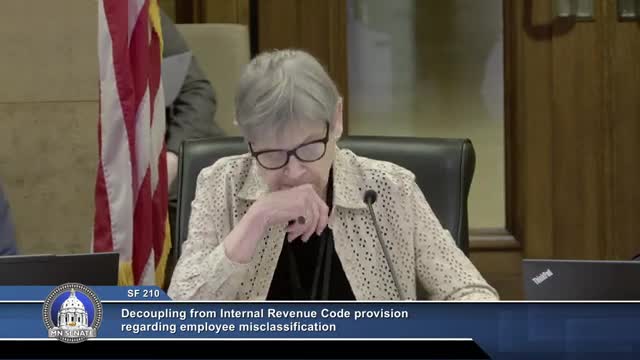Article not found
This article is no longer available. But don't worry—we've gathered other articles that discuss the same topic.

Committee advances plan to make political contribution-refund receipts electronic

Bill would ensure court-ordered cancellation of coerced debt is not treated as taxable income

Committee forwards bill modifying short-line railroad tax credit to Transportation Committee

Panel hears bill to extend partial property-tax exemption to airport lessees in mid-sized Minnesota cities

Committee hears bill to deny state conformity with federal Section 530 safe harbor for worker misclassification

